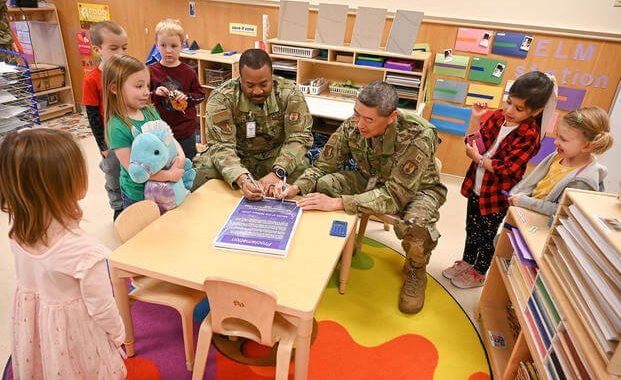Marine Corps Brings in Civilians to Tackle Barracks Management, Repairs in Decades-Old Housing
4 min read

The Marine Corps is expanding its plan to put civilians in its barracks manager program, a move intended to improve decades-old housing by hiring contractors to run down repairs and inspections instead of putting those responsibilities in the hands of junior Marines.
On Wednesday, Camp Lejeune in North Carolina announced that it had hired more than 40 contracted barracks managers to supervise maintenance reports, repairs, check-ins and inspections for the installation’s 140 enlisted barracks, according to a news release. But it’s not the only base.
Bill Gallagher, director of the Bachelor Housing Division at Lejeune, told Military.com via email Monday that the Marine Corps is hiring contracted barracks managers at all of its more than two dozen installations. At Lejeune, he said, those personnel will continually update military databases with resident information and repair requests while working directly with unit logistics teams and commanders.
Last year, the commandant of the Marine Corps, Gen. Eric Smith, said that the service was looking into professionalizing the program under its Barracks 2030 initiative, a plan meant to improve hundreds of housing facilities that have fallen into disrepair and squalor over the last two decades — at one point leaving 17,000 Marines in substandard living conditions.
“The ultimate goal of the civilianized barracks manager program is to improve the quality of life for Marines who live in the barracks,” Gallagher said in the news release.
In a memo earlier this year, the Corps said that it was looking to take barracks management responsibilities away from more than 500 noncommissioned officers and give them to 115 government personnel and 232 contractors.
Before the initiative, those young Marines were often charged with fielding maintenance reports and working with public works officials to repair the barracks. Those duties were on top of the Marines’ day-to-day jobs and would transfer to someone new every two or three years amid the constant flow of duty station moves.
“I don’t want to put a corporal or a sergeant who’s not a barracks manager in charge of that barracks. That’s how you fix the public works — with a professional to a professional,” Smith, the commandant, said last year.
Now, the service is attempting to inject more consistency into the program by bringing in a stable of permanent personnel specifically trained in barracks management. Those contractors, the new release said, will track room assignments, ensure they are ready for incoming Marines, and work to ensure that repair requests are handled quickly.
Gallagher said that some installations, such as Marine Corps Base Hawaii and Marine Corps Air Station Beaufort, South Carolina, have had civilian barracks managers for years. In 2020, the service hired civilian barracks managers at several installations, including at Lejeune, but this year, contracts at the East Coast base were expanded to bring their previously narrow roles into the broader “day-to-day management of all barracks,” he said.
As of Sunday, Lejeune had hired 41 contractors, who began their training in September and will be assigned to the installation’s 2nd Marine Logistics Group, 8th Communication Battalion, and Wounded Warrior Battalion-East.
The training was spaced out over three phases, Gallagher said, and included familiarization with occupancy databases — “similar to a hotel reservations system;” maintenance requests; inspections; furnishing inventory; and check-in and check-out procedures.
“[Ninety-three percent] of the contracted barracks managers are military-affiliated, which includes active reservists, veterans or retirees, with the majority of them being staff noncommissioned officers,” Gallagher said. “With that experience, they bring to the position an innate understanding of barracks living. The main crux of their job is to track and report occupancy, room utilization, maintenance issues, furnishings, and any damage done by the resident.”
Marines previously stated that fix tickets would remain stagnant for weeks or months, adding a layer of frustration to their already difficult jobs as some installations struggled to fill critical public works positions often burdened by infrastructure that needs constant upkeep, like air conditioning and ventilation.
In August ,it was reported that some Marines were languishing in sweltering barracks as temperatures hit record highs amid failing air conditioning units and inconsistent cooling policies. In October, the Marine Corps said that it had allocated millions of dollars for some West Coast units to install new air conditioners.
Military.com asked the Marine Corps what costs were associated with hiring the civilian barracks manager force across the service, but it did not reply by publication time.
“The quality of life for our Marines in the barracks is of the utmost importance to me and the entire team as it directly relates to combat readiness,” Col. Ralph Rizzo Jr., the commander of Marine Corps Installations East-Marine Corps Base Camp Lejeune, said in the release.





